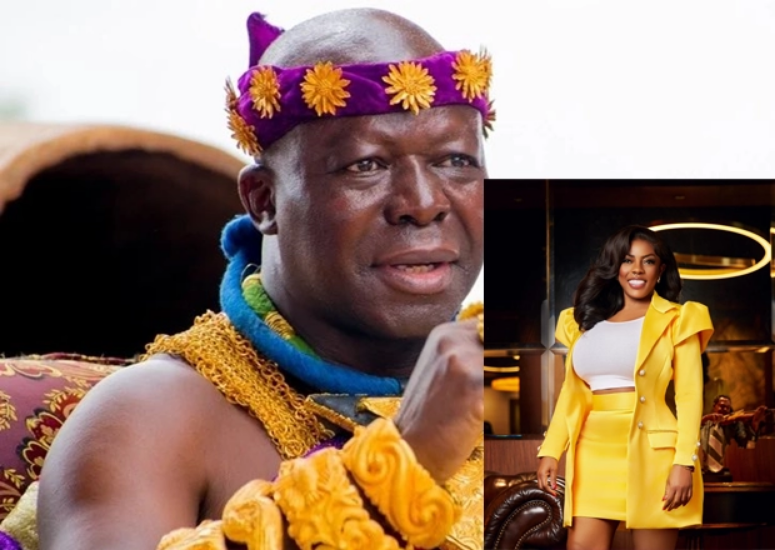The recent funeral rites of the Asantehemaa, Nana Ama Konadu Yiadom III, have sparked widespread commentary, particularly regarding the grandeur of the ceremonies and the prominent role of the Asantehene, Otumfuo Osei Tutu II. Broadcast journalist Nana Aba Anamoah, speaking on UTV’s United Showbiz, lauded the Asantehene’s leadership and the cultural richness on display, declaring him the most powerful king in Africa. Her assertion stems from the impressive convergence of diverse groups at the funeral – traditional leaders from across Ghana, high-profile figures, and members of the diplomatic corps – a testament, in Anamoah’s view, to the Asantehene’s influence and the unifying power of the Ashanti Kingdom. She emphasized the funeral’s reflection of both Ghanaian unity and the global recognition of the Asantehene’s authority.
Anamoah further highlighted the funeral’s significance in showcasing the Ashanti Kingdom’s ability to seamlessly blend tradition with modernity. While certain aspects of Asante culture are traditionally considered sacred and private, the decision to allow media coverage of the funeral rites demonstrated a conscious effort to share the kingdom’s story and assert its cultural dominance. This strategic approach, she argued, broadened the appeal of the event, drawing in even those unfamiliar with Asante traditions. The televised ceremonies provided a unique window into the customs and rituals of the Ashanti people, allowing a wider audience to appreciate their rich heritage and the power they wield within Ghana and beyond.
The funeral itself, a four-day event held at Manhyia Palace in Kumasi, was a spectacle of tradition and custom. From September 15th to 18th, 2025, mourners and dignitaries gathered to pay their respects to the late Asantehemaa, the 14th to hold the title and the biological sister of the Asantehene. The Asantehene, Otumfuo Osei Tutu II, presided over the ceremonies, leading solemn processions and performing key rites, accompanied by traditional priests and priestesses who added an element of mystical reverence to the proceedings. The elaborate rituals, steeped in centuries of tradition, served as a powerful reminder of the enduring legacy of the Ashanti Kingdom.
Nana Aba Anamoah’s comments underscore the Asantehene’s significant influence, not just within Ghana but across the African continent. The funeral’s ability to draw such a diverse crowd speaks to the respect commanded by the Asantehene and the enduring power of the Ashanti Kingdom. This influence extends beyond traditional boundaries, as evidenced by the presence of international dignitaries and the widespread media coverage, signifying the global recognition of the Asantehene’s authority. The carefully orchestrated balance between preserving sacred traditions and allowing public access served to amplify the event’s impact, showcasing the kingdom’s rich heritage to a global audience.
The Asantehemaa’s funeral was more than just a mourning ritual; it was a powerful display of cultural heritage and a testament to the strength and resilience of the Ashanti Kingdom. The event served to reinforce the Asantehene’s position as a prominent figure, not only within Ghana but throughout Africa. The fusion of tradition and modernity that characterized the funeral proceedings further cemented the Ashanti Kingdom’s ability to adapt and evolve while maintaining its deep-rooted customs and values. This ability to navigate the complexities of a changing world while upholding tradition is a key factor in the kingdom’s enduring power and influence.
In conclusion, the funeral of the Asantehemaa, Nana Ama Konadu Yiadom III, provided a compelling glimpse into the traditions and power of the Ashanti Kingdom. The event, orchestrated under the leadership of the Asantehene, Otumfuo Osei Tutu II, served as a powerful reminder of the kingdom’s enduring legacy and its ability to maintain cultural relevance in a modern world. The widespread attendance and media coverage, coupled with the commentary from prominent figures like Nana Aba Anamoah, underscore the Asantehene’s significant influence and solidify the Ashanti Kingdom’s position as a major cultural force in Ghana and beyond. The funeral, a poignant tribute to the late Asantehemaa, also served as a powerful affirmation of the kingdom’s continued vitality and its unique blend of tradition and modernity.


